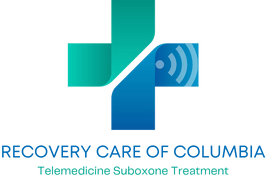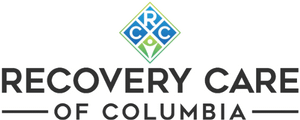Columbia Suboxone Clinic Blog
Kratom Withdrawal Timeline – What to Expect and How to Find Relief
Understanding the kratom withdrawal timeline is crucial for anyone struggling with opioid or kratom dependence in Tennessee. Many men and women—often between the ages of 18 and 45—turn to kratom believing it’s a “safer” alternative. Unfortunately, withdrawal symptoms can be just as uncomfortable as opioids, leaving people trapped in a cycle of use. At Recovery Care of Columbia, we specialize in helping people overcome these struggles with Suboxone treatment, counseling, and convenient telemedicine care.
What Is Kratom and Why Is It Addictive?
Kratom is a plant-based substance that interacts with the brain’s opioid receptors. Although sold as an herbal supplement, the DEA has identified kratom as a substance of concern due to its addictive potential and reports of overdose and even death. According to research published in the Journal of Addiction Medicine, kratom can cause dependence similar to opioids, and withdrawal symptoms often push users back into relapse.
The Kratom Withdrawal Timeline
Withdrawal from kratom varies depending on the individual, their level of use, and whether they are mixing it with other substances. Below is a general kratom withdrawal timeline that many patients experience:
Kratom Withdrawal Timeline: What to Expect
- 6–12 Hours After Last Use
- Cravings begin
- Anxiety and irritability set in
- Trouble sleeping may appear
- Cravings begin
- 24–48 Hours
- Muscle aches, sweating, nausea, and diarrhea worsen
- Depression and mood swings intensify
- Strong cravings make relapse likely
- Muscle aches, sweating, nausea, and diarrhea worsen
- 3–5 Days
- Symptoms peak during this period
- Insomnia, body pain, restless legs, and fatigue are common
- Mental health struggles such as anxiety and hopelessness surface
- Symptoms peak during this period
- 1–2 Weeks
- Physical symptoms taper off
- Emotional and psychological struggles (depression, lack of motivation) may continue
- Physical symptoms taper off
- Beyond 2 Weeks
- Lingering mental cravings
- Increased risk of relapse without treatment support
- Lingering mental cravings
Why Quitting Alone Can Be Dangerous
Trying to quit kratom—or any opioid—without support can feel overwhelming. Many people relapse because withdrawal is too difficult to manage. Sadly, relapse after detox can increase the risk of overdose and death, especially when tolerance has dropped.
That’s why medication-assisted treatment (MAT) using Suboxone is so effective. Suboxone virtually eliminates withdrawal symptoms and cravings, giving patients the chance to focus on long-term recovery.
Suboxone Treatment for Kratom and Opioid Withdrawal
At Recovery Care of Columbia, we help patients transition safely from:
- Hydrocodone
- Morphine
- Codeine
- Methadone
- Oxymorphone
- Tramadol
- Heroin
- Fentanyl
- Oxycodone, OxyContin, Percocet
- Kratom and all other opioids
Our treatment is designed to be painless, discreet, and accessible—you never have to visit a clinic in person.
Why Choose Recovery Care of Columbia?
We know the pain of addiction personally—our owners are in recovery themselves. That’s why we’ve built the kind of clinic we wished had existed when we needed help. Here’s why patients choose us:
- ✅ First clinic in Tennessee to receive a virtual medical license for addiction treatment
- ✅ Over 1,000 patients in Tennessee successfully treated
- ✅ 100+ five-star reviews on Google
- ✅ Accredited by The Joint Commission
- ✅ Counselors with master’s degrees to support mental health recovery
- ✅ TeleMAT®: our own nationally recognized model for telemedicine MAT
- ✅ No judgment, only compassionate care from people who truly understand
📱 Text us directly at (931) 548-3062 with your questions—our staff loves helping people find freedom from addiction.
Telemedicine Addiction Treatment: Accessible and Convenient
Many patients in Tennessee face barriers such as lack of transportation, childcare responsibilities, or work commitments. That’s why virtual Suboxone treatment is life-changing:
- No waiting rooms
- Appointments from your phone or tablet
- Flexible scheduling
- Covered by TennCare Medicaid and most commercial insurance plans
Tennessee Cities We Serve
We proudly provide telemedicine addiction treatment across Tennessee, including:
- Columbia
- Murfreesboro
- Jackson
- Clarksville
- Franklin
No matter where you are, you can access safe, professional care.
FAQs About the Kratom Withdrawal Timeline
How long does kratom withdrawal last?
Most people experience peak withdrawal symptoms within 3–5 days, but mental cravings can last weeks without treatment.
Is kratom withdrawal as bad as opioid withdrawal?
Yes, many patients report kratom withdrawal feels similar to opioids. That’s why Suboxone treatment is often recommended.
Can Suboxone help with kratom withdrawal?
Yes. Suboxone reduces cravings and withdrawal, allowing patients to recover without suffering.
Is online treatment really effective?
Absolutely. We’ve treated over 1,000 patients virtually in Tennessee with great success.
How to Get Started Today
Ready to take the first step toward recovery? Choose the path that fits you best:
- Register with commercial insurance
- Register with TennCare Medicaid
- Register as a self-pay patient
- View insurance and pricing
- Meet our staff
Related Articles
- Suboxone Doctor Online Tennessee: Your Virtual Path to Recovery
- Kratom Withdrawal: Safe Treatment Options in Tennessee
- Virtual Treatment for Kratom Addiction: Effective Online Help
- Find a TN Licensed Suboxone Provider for Virtual Addiction Recovery
External Resources
- National Institute on Drug Abuse
- Centers for Disease Control and Prevention | CDC.gov
- Substance Abuse and Mental Health Services Administration (SAMHSA)
- Locate a Peer Recovery Support Specialist
- DEA.gov – Opioid addiction-related articles
- National Center on Substance Abuse and Child Welfare
- Tennessee Department of Health Drug Overdose Dashboard



